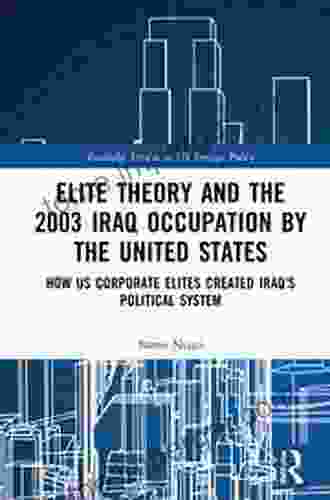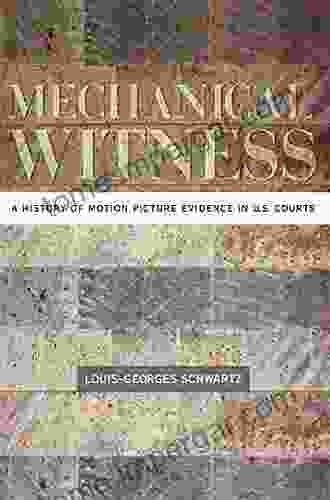Elite Theory and the 2003 Iraq Occupation by the United States: Unraveling the Truth

The 2003 Iraq Occupation by the United States stands as a pivotal event in modern history, marking a significant shift in global power dynamics and setting the stage for ongoing conflict and instability in the Middle East. To fully comprehend the complexities of this invasion and its repercussions, it is crucial to examine the role of elite theory in shaping the decision-making process and the subsequent outcomes.
4 out of 5
| Language | : | English |
| File size | : | 2383 KB |
| Text-to-Speech | : | Enabled |
| Enhanced typesetting | : | Enabled |
| Word Wise | : | Enabled |
| Print length | : | 269 pages |
| Screen Reader | : | Supported |
Elite Theory: A Conceptual Framework
Elite theory posits that societies are governed by a relatively small and powerful group of individuals who hold disproportionate influence over political, economic, and social institutions. This elite, often composed of political leaders, corporate executives, and military officials, wields significant control over policy formulation and decision-making.
Elite theory emphasizes the role of power and interests in shaping elite behavior. Elites are primarily motivated by their own self-preservation and the pursuit of their interests, which may or may not align with the broader interests of the society they govern.
Elite Theory and the 2003 Iraq Occupation
In the context of the Iraq Occupation, elite theory provides a compelling framework for analyzing the decision-making process that led to the invasion and its subsequent trajectory. The Bush administration, which orchestrated the invasion, was heavily influenced by a small group of advisors and policymakers, many of whom held close ties to the oil industry and defense contractors.
These elite policymakers argued that the invasion was necessary to remove Saddam Hussein from power, prevent Iraq from developing weapons of mass destruction, and promote democracy in the Middle East. However, critics contend that these justifications were pretextual and that the real motives for the invasion lay in securing control over Iraq's vast oil reserves and establishing a strategic military presence in the region.
The Role of Power Dynamics
Elite theory highlights the intricate power dynamics that shape elite decision-making. In the case of the Iraq Occupation, the Bush administration enjoyed significant power due to its control over the military, intelligence agencies, and media outlets. This allowed them to silence dissenting voices, manipulate public opinion, and bypass established checks and balances.
Furthermore, the administration's close ties to powerful corporate interests, such as the oil and defense industries, provided them with additional leverage to pursue their agenda. These corporations stood to benefit financially from the occupation, further entrenching elite influence over the decision-making process.
Outcomes and Consequences
The 2003 Iraq Occupation had profound and long-lasting consequences. The invasion led to the overthrow of Saddam Hussein's regime but also resulted in widespread instability, violence, and humanitarian suffering. The war also severely damaged the reputation of the United States and eroded public trust in government institutions.
Elite theory helps explain the hubris and miscalculations that characterized the decision to invade Iraq. The Bush administration, driven by the self-interests of its elite policymakers, pursued a misguided foreign policy that ultimately failed to achieve its stated objectives.
Elite theory provides a valuable lens through which to examine the 2003 Iraq Occupation by the United States. By understanding the role of elite power dynamics in shaping decision-making, we can gain a deeper appreciation for the complex factors that influence foreign policy and its consequences. This knowledge is essential for preventing similar mistakes in the future and promoting more ethical, just, and sustainable approaches to international relations.
The book "Elite Theory and the 2003 Iraq Occupation by the United States" offers a comprehensive and nuanced analysis of this pivotal event, drawing on elite theory to unravel the truth behind the invasion and its aftermath. By delving into the motivations, interests, and power dynamics of the elite policymakers involved, this book sheds light on the profound impact of elite decision-making on world affairs.
4 out of 5
| Language | : | English |
| File size | : | 2383 KB |
| Text-to-Speech | : | Enabled |
| Enhanced typesetting | : | Enabled |
| Word Wise | : | Enabled |
| Print length | : | 269 pages |
| Screen Reader | : | Supported |
Do you want to contribute by writing guest posts on this blog?
Please contact us and send us a resume of previous articles that you have written.
 Book
Book Novel
Novel Page
Page Chapter
Chapter Text
Text Story
Story Genre
Genre Reader
Reader Library
Library Paperback
Paperback E-book
E-book Magazine
Magazine Newspaper
Newspaper Paragraph
Paragraph Sentence
Sentence Bookmark
Bookmark Shelf
Shelf Glossary
Glossary Bibliography
Bibliography Foreword
Foreword Preface
Preface Synopsis
Synopsis Annotation
Annotation Footnote
Footnote Manuscript
Manuscript Scroll
Scroll Codex
Codex Tome
Tome Bestseller
Bestseller Classics
Classics Library card
Library card Narrative
Narrative Biography
Biography Autobiography
Autobiography Memoir
Memoir Reference
Reference Encyclopedia
Encyclopedia Henriette Maasdijk
Henriette Maasdijk Bill Nason
Bill Nason Barbie Ladeveze
Barbie Ladeveze George Anastasia
George Anastasia Diane Leblanc
Diane Leblanc Bikramjit Basu
Bikramjit Basu Olatundun Solomon
Olatundun Solomon Gabriel Orion Marie
Gabriel Orion Marie Frank Bawdoe
Frank Bawdoe Bex Partridge
Bex Partridge Henry Van Dyke
Henry Van Dyke Baldev Bhatia
Baldev Bhatia Bahia Shehab
Bahia Shehab Bence Nanay
Bence Nanay Dan King
Dan King Tony Grant
Tony Grant Robert A Norman
Robert A Norman Ben Ohmart
Ben Ohmart Benjamin Creme
Benjamin Creme Doug Spurling
Doug Spurling
Light bulbAdvertise smarter! Our strategic ad space ensures maximum exposure. Reserve your spot today!

 Gustavo CoxAid on the Edge of Chaos: A must-read for humanitarians facing complexity and...
Gustavo CoxAid on the Edge of Chaos: A must-read for humanitarians facing complexity and...
 Adam HayesUnlocking the Sanctuary Within: A Life-Changing Journey for Introverts in an...
Adam HayesUnlocking the Sanctuary Within: A Life-Changing Journey for Introverts in an... Colby CoxFollow ·18.3k
Colby CoxFollow ·18.3k Ethan MitchellFollow ·3.2k
Ethan MitchellFollow ·3.2k Gerald BellFollow ·19.3k
Gerald BellFollow ·19.3k Jake PowellFollow ·10.8k
Jake PowellFollow ·10.8k Alex ReedFollow ·11.9k
Alex ReedFollow ·11.9k Roger TurnerFollow ·4.6k
Roger TurnerFollow ·4.6k Fernando PessoaFollow ·7.2k
Fernando PessoaFollow ·7.2k Curtis StewartFollow ·5.4k
Curtis StewartFollow ·5.4k

 Edison Mitchell
Edison MitchellFrench Strategy and Operations in the Great War
An In-Depth Examination of Military Genius ...

 Harvey Hughes
Harvey HughesArts In Health: Designing And Researching Interventions
Delving into the...

 Walt Whitman
Walt WhitmanHealing and Hope for Those with Empty Arms
A Comprehensive Guide for Grieving...

 DeShawn Powell
DeShawn PowellUniversity of Maine Ice Hockey: A Legacy of Frozen Glory
Nestled in the heart of Maine, a state...

 George Hayes
George HayesControl For Aluminum Production And Other Processing...
In today's competitive manufacturing...

 Ben Hayes
Ben HayesThe Lost Obelisks Of Egypt: A Journey into the Depths of...
: The Enduring Allure of Egypt's Ancient...
4 out of 5
| Language | : | English |
| File size | : | 2383 KB |
| Text-to-Speech | : | Enabled |
| Enhanced typesetting | : | Enabled |
| Word Wise | : | Enabled |
| Print length | : | 269 pages |
| Screen Reader | : | Supported |








